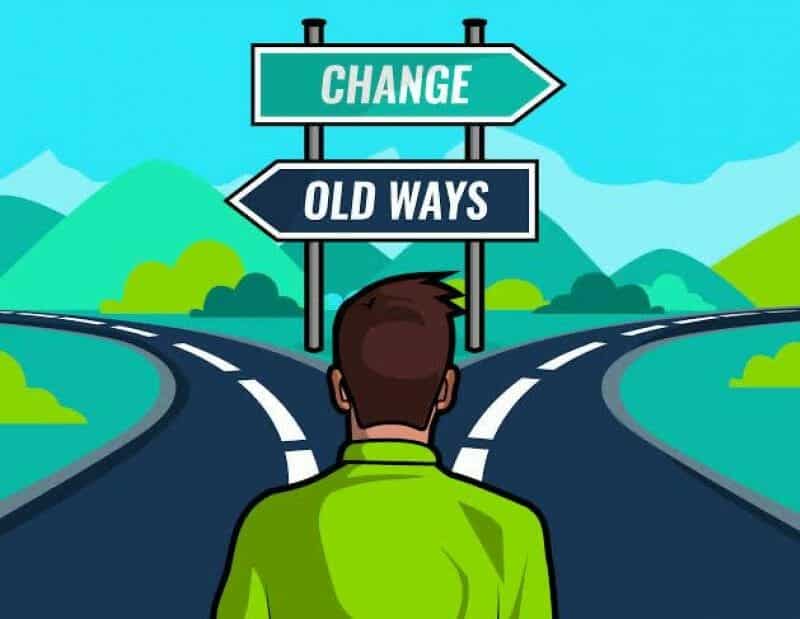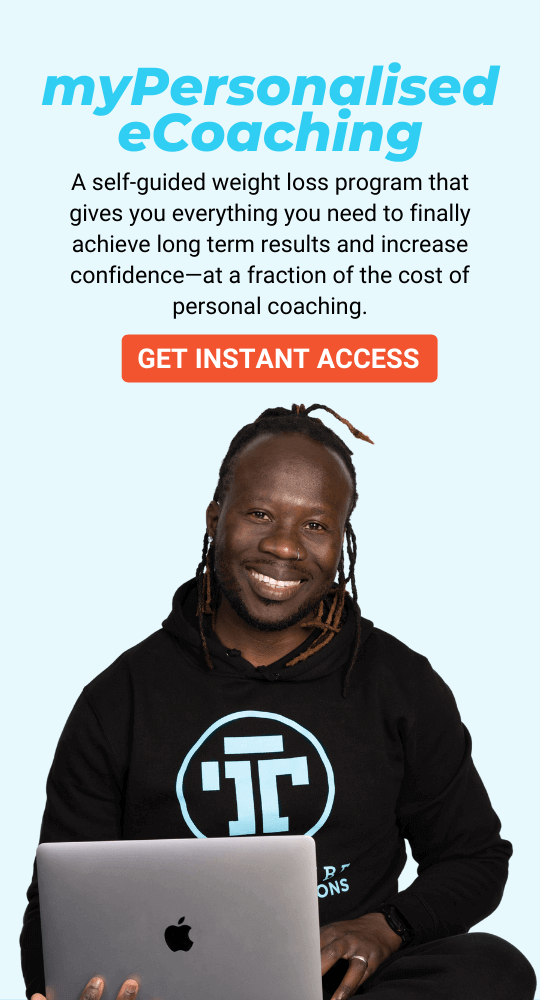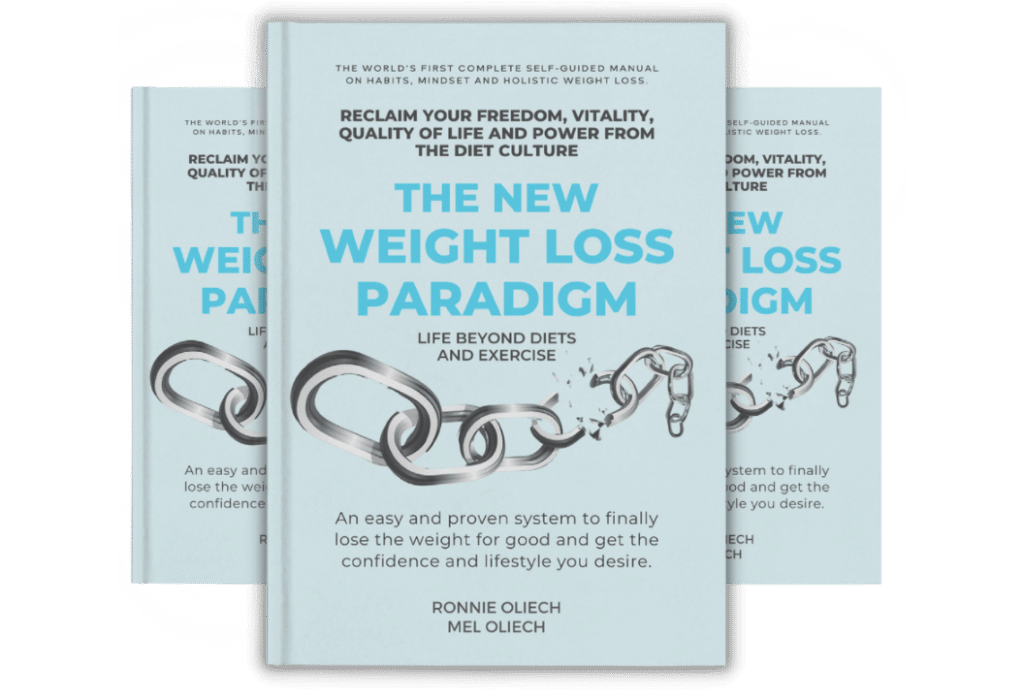Are you frustrated with your inability to lose weight despite going on multiple diets?
If you are, you’re not alone. Many people struggle to lose weight, despite dieting, fasting or following wellness programs.
You might believe you just need to find the right program that works for you.
But we’re here to tell you that you need to change your approach completely, if you want to lose weight for good.
The dieting roundabout
When someone decides to lose weight, there is a usual process that they follow, regardless of what the diet or eating program is called. Let’s look at how the diet roundabout works.
Let’s say that Mary signs up to Diet A. This diet advises her that she must cut out carbs from her diet, and increase the amount of fat and protein she eats in order to lose weight. She’s also advised to start exercising which she does. For the first few weeks, Mary is able to stick to the plan and every time she weighs herself, she loses weight. She’s really happy, even though it’s hard to stick to. But after a few more weeks, her weight loss stalls, and Mary finds that she can’t stick to the plan as rigidly as she did in the beginning. She starts to wonder if she should try another diet.
So Mary stops Diet A, and signs up to Diet B. This time, she’s encouraged to fast for a period of time during the day, and only eat within certain hours. She’s also encouraged to engage in high-intensity cardio exercise most days. Mary follows the rules, and is delighted to see her weight decrease again. She believes that this is the program that will work for her, despite the fact that her fasting time each day means she can never go out and eat breakfast with her friends like she used to. But after a few weeks, Mary realises that this diet is too restrictive. She wants something that will fit into her lifestyle and give her more flexibility.
So she signs up to Diet C. Only this isn’t a diet. It’s a wellness program. Mary has an individual consult with a diet coach who explains their system to her. Instead of restricting food groups and following rules, Mary just has to stick to a budget of ‘points’ each day. Under this system, all foods are allocated points. As long as she sticks to her point limits each day and exercises regularly, she should lose weight. Mary likes the sound of this approach, believing that it will give her more flexibility around food. She follows the system and after 6 weeks, she has lost 5kg. It hasn’t been that hard to follow — although she does have to spend each day counting points. And if she wants to go out on the weekends, she needs to do extra exercise to ‘bank’ points that she can use later in the week. After another 6 weeks though, Mary is disappointed to notice that she hasn’t lost any weight at all. In fact, her weight has fluctuated by a few hundred grams each week, except for one week where she gained 1kg. Mary starts to wonder if she should start looking for another program.
The same formula
While the programs that Mary has tried all seem different, there are some key aspects of them that are all the same.
- Restricting food — restricting calorie intake, eliminating food groups, counting calories (points), or fasting
- Increasing exercise — usually increasing cardio exercise or trading exercise for food
- Weigh-ins — monitoring progress only using a scale
- Following rules — each plan involves following a set of rules or regulations
These four things are the typical hallmarks of a diet.
What about wellness programs?
Don’t be fooled by the diet industry that re-packages their old programs into something new. Many of the ‘old-school’ diet programs have undergone a revamp in recent years in order to appeal to a younger, newer generation.
A 2017 market analysis report into the diet industry claimed that the challenge for the industry would be to stay relevant and cultivate the future generation of dieters, because older school programs are viewed as their mother’s or grandmother’s weight loss programs.
Enter in a new breed of ‘programs’, which are simply old diets disguised as something new. Often promoted under the guise of wellness or lifestyle, these include programs that promote ‘clean eating’, detoxes, cleanses and removing ‘impure’ foods from your life — especially gluten and grains.
While these plans may be rebranded and include words like ‘wellness’, ‘lifestyle’, ‘eating plan’, or ‘system’, they are still diets if they promote the 4 steps listed above.
It doesn’t matter what program you follow, if you’re still doing the same things under the guise of a different name, it’s still a diet which won’t give you the results you’re looking for.
What’s the right approach?
It doesn’t matter what diet, program or plan you follow if you’re still doing the same things (e.g. restricting food, focusing on burning calories through exercise, weighing yourself frequently and following rules), you’ll never lose weight. In fact, you’ll get further away from where you want to be.
It’s like travelling in a car. You want to head north, but the route you’re on is actually heading south. So you change routes. But the next route you take still takes you south. This time, you change cars, take another route, only to find that this one is also heading south.
If your weight loss results are heading south, then you need to change direction. You need to start going north. And to do that, you need to do the opposite of what you’ve always done.
Change direction, not the route
The truth is, in order to lose weight you need to do the opposite of what you’ve always done, which may sound counter-intuitive. Here are some examples:
- If you’ve always cut back calories or restricted food, you need to slowly start consuming more calories.
- If you’ve always cut out food groups, you need to spend time learning how to eat from all food groups.
- If you’ve spent time over-exercising, you need to focus on exercising for just 3% of your week.
- If you’ve always felt unworthy, you need to learn how to feel worthy.
- If you’ve always been a people-pleaser, you need to learn how to put yourself first.
- If you’ve always looked for a quick-fix, you need to learn that losing weight is a process.
- If you’ve struggled with alcohol consumption, you need to learn how to reduce your intake.
- If you’ve engaged in emotional eating, you need to learn how to manage your emotions.
- If you’ve always tried to control everything, you need to learn how to let go of the need to control.
- If you’ve had a hard time controlling binge eating, you need to learn how to stop restricting food.
- If you’ve always struggled to be confident, you need to build up your confidence.
- If you’ve never prioritised sleep, you need to build better habits around your sleep.
- If you’re often stressed, you need to learn how to manage stress.
- If you waste countless hours of your day on social media, you need to develop boundaries around how much time you spend on it.
- If you’ve lived in your comfort zone because you’re afraid, you need to learn how to confront your fears.
- If you’ve always tried to be perfect, or had a diet mindset, you need to work towards being consistent.
- If you’ve never been clear about your weight loss goals, or why you want to lose weight, you need to set goals and discover your why.
- If you’ve always looked for big or quick results with your weight loss, you need to start celebrating your small achievements.
- If you’ve never collected data about what you’re doing to try to lose weight, you need to start.
- If you’ve never worked with a coach, then you need to make yourself accountable for your results.
- If you’ve always compared yourself with others, you need to learn how to stop.
- If you’ve always relied on willpower, you need to develop an environment for success.
- If you’ve always used scales to measure progress, you need to learn different ways to measure your success.
- If you’ve always worried about fitting in, you need to stop worrying about what others think.
- If you’ve always focused on diet and exercise to lose weight, you need to start working on your habits.
Permanent weight loss is less about what you eat and how you exercise, and more about changing your habits and mindset, and developing the skills and strategies you need in order to manage any situation on any given day.
Despite their claims, diets only take you further away from where you want to be. Following the same processes, over and over again isn’t the answer. As they say, the definition of insanity is doing the same thing over and over again, but expecting a different result.
If nothing changes, then nothing changes.
If you’re ready to head north and take a different path towards the body you’ve always wanted, we’re ready to help you.


















